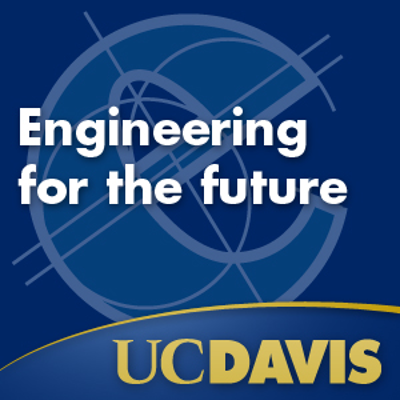
Engineering for the Future
Englisch
Gratis en Podimo
Kostenlos hören bei Podimo
Starte jetzt und verbinde dich mit deinen Lieblingspodcaster*innen
- Vertraut von über 1 Mio. deutschen Hörer*innen
- Über 1.000 lokale Podcasts und Shows – nur bei Podimo
- Keine Zahlung nötig
Mehr Engineering for the Future
The Dean's Distinguished Lecture Series brings nationally recognized individuals to UC Davis and the College of Engineering to discuss the latest engineering advancements.
Alle Folgen
11 FolgenMaterials to Study Cell Biology in the Fourth Dimension
The College of Engineering at UC Davis presented a lecture by Kristi S. Anseth on Monday, May 5, in 1005 GBSF Auditorium, Genome Center. A distinguished professor and the Tisone Professor in the Department of Chemical and Biological Engineering at the University of Colorado, Boulder, Anseth, spoke on “Materials to Study Cell Biology in the Fourth Dimension.”
Francis Lee on Leadership
Francis Lee, board chair and former CEO of Synaptics, Inc., spoke on Tuesday, April 23 at Kemper Hall on the UC Davis campus. A 1974 graduate of UC Davis, Lee has led Synaptics' growth into a leading worldwide developer of custom-designed user interface solutions for mobile computing, communications and entertainment devices. Synaptics' mission is to enrich the interaction between users and their intelligent devices. Synaptics products emphasize ease of use, small size, low power consumption, advanced functionality, durability and reliability, making them applicable to a multitude of markets, including mobile phones, notebook computers, PC peripherals, and portable entertainment devices such as MP3 players. Francis Lee Biography: http://engineering.ucdavis.edu/go/50years/innovators/FrancisLee.html
Educating Engineers for the 21st Century
James Plummer, dean of the School of Engineering at Stanford University, speaks at UC Davis on Tuesday, May 15, about what education is essential for producing tomorrow's engineers.
Biosignatures
Deirdre Meldrum of Arizona State University speaks at the UC Davis College of Engineering on May 5, 2012, on biosginatures and health prevention.
Identifying the Unique Ground Motion Signatures of Supershear Earthquakes
This is part of the UC Davis College of Engineering's Distinguished Lecture Series by Ares Rosakis, Theodore von Karman professor of aeronautics and professor of mechanical engineering; and chair, Division of Engineering and Applied Science at the California Institute of Technology. He says directly studying earthquakes presents a host of insurmountable difficulties, the least of which is our inability to trigger earthquakes of various magnitudes at will and the lack of means of scrutinizing the behavior at depth while the quake propagates. Ares' lab has developed techniques to produce miniature (or surrogate) laboratory earthquakes and follow their progress with high-speed imaging tools.















































![Schöne falsche Welt [ungekürzt]](https://cdn.podimo.com/images/94ef5516-5cad-447c-a77c-763337e12a35_400x400.png)